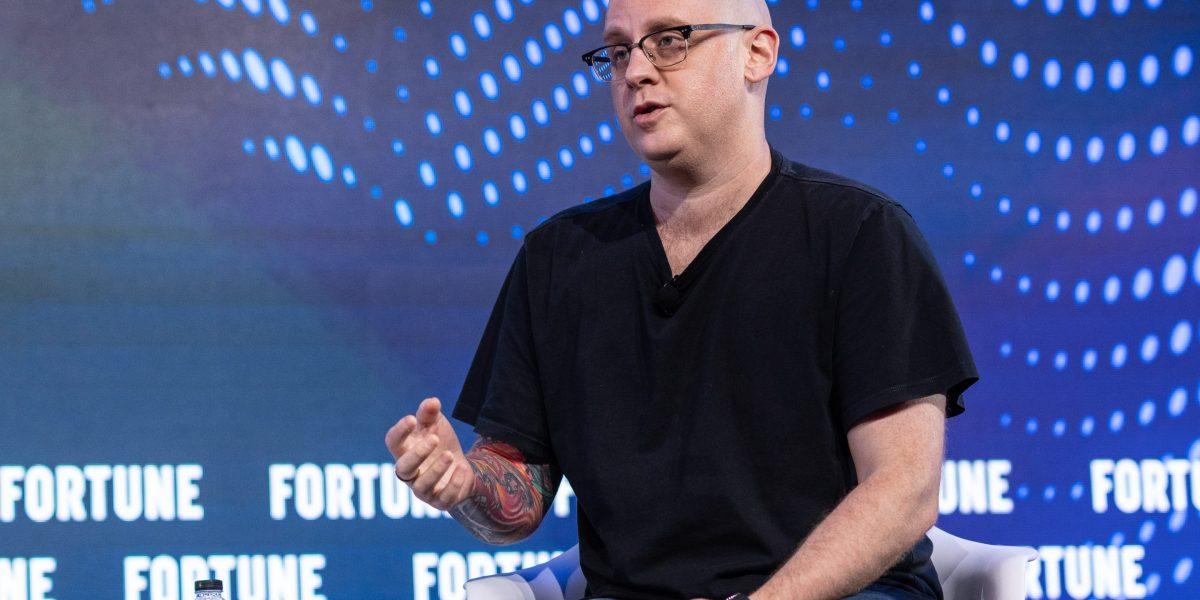Generative AI Usage in Steam Games Surges by 700% in 2025, Raising Concerns and Opportunities
6 Sources
6 Sources
[1]
1 in 5 Steam games released in 2025 use generative AI, up nearly 700% year-on-year -- 7,818 titles disclose genAI asset usage, 7% of the entire Steam library
New research into the proliferation of generative AI being used to develop games on Steam has revealed a staggering 681% increase in the number of titles that disclose the use of the technology. In fact, there are now over 7,500 titles that disclose GenAI usages, up from barely 1,000 in 2024, according to Totally Human Media. Ichiro Lambe, a veteran game developer who authored the study, noted that around 1,000 Steam titles disclosed the use of generative AI just over a year ago. Spurred to follow up as the rising tide of AI continues to flood all before it, Lambe says that his latest figures indicate the propagation of games using generative AI in any capacity has vastly increased in the last 12 months. Lambe says there are now 7,818 titles on Steam that disclose GenAI usage. Starting in January 2024, Steam added new fields to the content survey that developers are required to fill in when they submit a game to the platform, requiring developers to declare how they're using AI in the development of their games. Use cases are broadly divided into two categories: live generated -- content created with AI while the game is running -- and pre-generated, which could be anything from art, code, sound, and beyond. That surge marks an increase of 681% of total titles using GenAI compared with April last year. However, the number only represents 7% of the entire Steam library, some 114,000 titles. Perhaps more interestingly, 2025 has seen an exponential influx, with one in five (20%) of all titles released in 2025 featuring GenAI in some form. Helpfully, Lambe provides a breakdown of what exactly GenAI usage could entail in any given game's production. As you can imagine, visual asset generation is a massive one, and about 60% of disclosures mention it for use in creating characters, backgrounds, models, textures, and more. As noted, there's also the generation of audio, which could mean anything from background music to voice-overs, narration, and even character voices using text-to-speech tools. Text and narrative generation also indicates developers are leaning on LLMs to create copy, covering anything from item descriptions to entire story arcs. Perhaps more obscure, developers may be using AI in marketing and promotional materials on Steam's storefront for game descriptions, the about section, and promotional imagery. Finally, Lambe says there is "a ton" of code generation assistance going on. However, Lambe's insight also notes that games are using more and more AI during runtime, the aforementioned live-generated category, which developers must declare. Examples he notes include using GenAI to flag offensive material created by players, utilizing LLMs to generate entire 3D worlds based on player-created prompts, making real-time game mechanics decisions, and more. Attitudes towards AI tend to be divisive, but according to Lambe's report, the response is not wholly negative, highlighting games that lead with AI in their advertising and have positive reviews. In case you were wondering, the biggest games that feature GenAI from the last 12 months are My Summer Car, Liar's Bar, The Quinfall, and Inzoi. The biggest title is the former, which has sold 2.5 million copies and features AI-generated paintings inside the main house, again highlighting how disparate reliance on AI is across titles. Perhaps noteworthy of developers' caution and a sense that GenAI might perturb users, Lambe also says he is seeing more frequent instances of carefully created language, where developers disclose the use of AI in a defensive manner while trying to reassure potential customers about its inclusion. Questions remain about consumer adoption of AI-assisted Steam titles, and, of course, there is a huge blind spot in the data, namely, whether some games might not be disclosing their use of AI.
[2]
1 in 5 new video games on Steam now uses generative AI, report says
A new report from Totally Human Media reveals that nearly 20 percent of video games released on Steam in 2025 use generative AI. The report from Totally Human, which uses machine learning and generative AI to recommend games, books, shows, and movies, reported that approximately 7,818 games on Steam disclosed using Generative AI. That represents about 7 percent of the entire available Steam library. For games released on the platform in 2025, just under 20 percent -- or about 1 in 5 games -- utilized AI, or disclosed doing so, at least. In total, that's a nearly 700 percent increase in games that use generative AI on Steam, according to Totally Human Media's 2024 report on the same subject. Game Rant reported that the most popular game to make that Generative AI disclosure is My Summer Car, a vehicle simulation game that lets users build, fix, tune, and perform maintenance to their car. It has sold 2.5 million units, Game Rant reported. The disclosure reads, "The developers describe how their game uses AI Generated Content like this: There are some AI generated paintings found inside the main house." It looks like Totally Human gathered this data from Steam itself, which has required game developers to disclose the use of Generative AI since January 2024. Valve Corporation, the company that owns Steam, did not immediately respond to a request for comment from Mashable. In a Reddit thread about the Totally Human article, many commenters said if a game uses AI, that game will automatically go in their "ignore" list. "We need to tag them so they can be an ignored category," one user wrote. "More and more Steam games are going on my Ignore list," another user wrote. In general, even commenters who weren't completely against AI in games wrote that they were turned off by the move. "So many cool games in the steam next fest immediately put me off when I realized they were using GenAI. Pay artists ffs," another person commented. Although, there is nuance for many Steam users. "Not surprised in this day and age. Everyone at every company is pushing for AI usage, not surprise the gaming industry as a whole is also pushing for it," one user commented on Reddit. "So far AI assets are pretty easy to spot as you no doubt already know but I get the sentiment of 'what am I paying for if its all AI' and agree with it. I guess I don't mind AI usage for simple things like UI elements or unit cards, simple stuff."
[3]
The best way to manage gamer unease about generative AI in video games is 'to be direct about it,' says one developer
The use of AI is one of the most controversial subjects in the gaming industry. On the one hand, developers are increasingly turning to the new technology to help them generate content: One in three developers are starting to use generative AI, according to a survey earlier this year from the Game Developers Conference. Yet the subject of AI draws a fierce social media backlash, as both gamers and some developers decry the use of such tools as inauthentic and anti-consumer. The GDC's survey finds that 30% of developers think that generative AI is bad for the industry. Game developers who have embraced the use of AI in their work think there's a way to manage the social media backlash: Namely, by being upfront and honest about whether they use it. "You just have to be direct about it", Simon Davis, founder of GOAT Gaming, said at the Fortune Brainstorm AI Singapore conference on Tuesday. He explained that GOAT Gaming writes articles on their use of AI to help prevent accusations of "art theft" and maintain their customers' trust. As a result, he says backlash has been minimal. Trung Nguyen, founder of Vietnamese game developer Sky Mavis, admitted that he "used to be very skeptical about AI content generation." But the high-quality content that AI can now deliver to players changed his mind. Davis said that AI will soon become an established part of the gaming landscape, and that previous transformations, like the rise of paid extra content for games, drew their own internet outrage. And he made a bold prediction: That in a matter of years, the industry will have its first billion-dollar company built by just one person. What used to take a "team of 15 and maybe nine months" can now be done by non-technical "vibe creators" in just six weeks, Phylicia Koh, general partner at Play Ventures, said. That could be welcome news for the gaming industry, already struggling with ballooning development costs. AI could now help gaming studios lose the overhead costs of more-than-100 person teams keeping games up to date. But the new technology can also create content on a scale that's impossible for humans to match. Davis said his team could make 25 million characters for his platform using AI. Done without AI, such a task would have needed the work of "armies of people for decades," he said. Still, AI's effect on staffing could unnerve a developer population that's already worried about layoffs. GDC's survey also noted that one in ten developers have reported being the subject of job cuts over the past year. The best thing game developers in large companies can do right now is "building AI projects in every spare hour [they] have," Davis said. "It is going to be painful, and some jobs will be lost," Koh admitted. But AI may end up being a way to speed up the industry timeline and get costs back to a more manageable level.
[4]
The brainbox behind Valve's Steam Labs says the number of Steam releases featuring GenAI in 2025 is 1 in 5, with 7% of all games on there now incorporating it: 'We've octupled last year's figure'
But there's still "a vocal anti-AI sentiment among artists and gamers who simply won't buy games with this stuff in." Ichiro Lambe is a games industry veteran with one hell of a CV: he co-founded Worlds Apart (which became Sony Online Denver), founded Dejobaan Games (probably best-known for the excellently named skydiving game AaaaaAAaaaAAAAaAAAAA!!!), and consulted at Valve for a spell, during which he was one of the key movers behind the creation of Steam Labs. Steam Labs is all about poking at the data and experimenting with how the platform serves developers and players. Even though Lambe is no longer working with Valve, such habits clearly die hard: last year he took a look at how many games on Steam were disclosing use of generative AI, and found around 1000 titles. Now he's circled back to see how things have changed, and the short answer is: there are a hell of a lot more. Lambe found that just under 8,000 games on Steam ("more precisely: 7,818 titles") disclose GenAI usage in their creation. The total number of games on Steam is just under 115,000, so this figure represents 7% of the games on the platform. "We've octupled last year's figure," notes Lambe. "In fact, a little under 20% of all games released in 2025 have disclosed such use." With one in five games now featuring the technology, GenAI is clearly here to stay. The more interesting question Lambe then poses is what they're using it for. Around 60% of the disclosures related to visual assets of all sorts. Other popular uses are audio generation, such as using text-to-speech tools to voice characters, narrative generation (which can range from minor item descriptions to the entire story arc), and generating marketing materials. Finally, another biggie: "A ton of code generation assistance going on." Among the examples Lambe picks out there are what seem like good use cases for AI, particularly when you bear in mind that these games are coming from indie devs rather than big studios. A game called Comedy Night, for example, uses AI to auto-detect offensive names, descriptions, and uploaded stage backgrounds. But many, many others use GenAI to create the majority of the game: AI Roguelite uses it to "live-generate in-game content such as text, images, and sound effects," while Never Ending Dungeon has it generating "rich, diverse scenarios with maps tailored for both Game Masters and players" with AI NPCs, enemies, traps, and rooms. AI Roguelite is an interesting example, Lambe notes, because while many of these games are in early access and in some ways unfinished, this has 432 reviews and an 82% positive rating. The reviews show players enjoy the flexibility, with one lauding how it can tell the "story of a homeless man turned mage taking over the world with questionable weapons/abilities, while in the process waiting in line to use the public restroom, feeding Naruto drug-infused flan, and making a deal with the Burger King (himself) for an unlimited lifetime supply of Whoppers, this game will let you do that. And I think that's beautiful." The necessary caveat here is that the kind of player who'll try and/or buy something called AI Roguelite is going to be self-selecting, and probably inclined towards being positive about the technology. But I'm not suggesting that these reviews are false positives: Lambe thinks the interesting takeaway is that "consumers feel there are games that do make GenAI-in-gameplay work." The biggest-selling genAI games, for the most part, use the technology lightly. My Summer Car (estimated sales: 2.5 million units) uses it for "some AI generated paintings found inside the main house." Liar's Bar (estimated sales: 1.3 million units) uses it to voice the characters. The Quinfall (estimated sales: 175k units) uses it for "some in-game interface images" while "all AI running outside the game interface is programmed by [developer] Vawraek Technology." The most high-profile example of genAI use is Krafton's InZOI (estimated sales: 500k units), which allows players to use text input to generate outfit textures, 3D items, and even animations (using video input). Lambe notes that the language of AI disclosures is also being more carefully curated, with developers aware of the potential for user backlash. Thus many of the disclosures outline the GenAI use case, before emphasising that humans remain in charge. "It's a tightrope walk," says Lambe. "They're disclosing usage, as per Valve's rules, but also working hard to reassure customers that a human is still at the helm, ensuring quality and, well, artistic integrity. Will they sway GenAI opponents? I dunno." The deep dive ends with a reminder that the 8k figure for games involving GenAI is based on self-disclosure as per Valve's rules. There are undoubtedly games out there using it that haven't done so and fly under the radar (or get called out), so this number is going to be at the low end of the reality. As for where we go from here, the obvious and probably accurate prediction is that we'll see even more games incorporating GenAI over time. But things may not be so simple. "There are devs who absolutely will not use anything that's trained on other people's material, or (even in cases where training materials are licensed) object to GenAI on the basis that it takes the creativity out of things or nukes jobs," concludes Lambe. "To wit, there's a vocal anti-AI sentiment among artists and gamers who simply won't buy games with this stuff in." Then a final question: "How many games [using GenAI] on Steam by the end of the year? Taking all bets."
[5]
Steam's slop problem has gotten much worse as reports say the number of games using GenAI has gone up almost 800% in the last year alone
The number of games disclosing Generative AI usage on Steam has shot up by almost 800% over the last year, with just under 8,000 games being sold using it. Gaming storefronts have been a hot topic over the last few years as seemingly every platform holder has opened the floodgates to whoever and whatever. One glance at the Nintendo eShop unloads a wave of slop with low-effort, AI-generated thumbnails. It even affects popular games, as PC-exclusive viral hit Schedule 1 has faced ripoff games on both PlayStation and the Switch eShop, while Unpacking director Wren Brier notes multiple AI ripoffs of their game on the eShop being sold for cheap, presumably to lure in unsuspecting buyers. A report from Ichiro Lambe (founder of indie studio Dejobaan Games) found that things are only getting worse. "A year ago, I poked around Steam to see how many game developers were disclosing usage of Generative AI. It was around 1,000, which seemed like a lot to me at the time." However, one year on, "Nearly 8,000 games on Steam Use GenAI. Or, more precisely: 7,818 titles on Steam disclose GenAI usage. That's 7% of the total Steam library," with one in five games released in 2025 using it. Lambe notes that as players become increasingly savvy and refuse to play games using GenAI (Jurassic World Evolution 3 recently discontinued its AI use due to players rejecting what should be done by a person), developers are using more defensive language. Additionally, this number only represents developers who voluntarily disclose the use of GenAI, so there's a chance the issue is much worse than reported. Granted, when you hear about games using GenAI, I imagine it conjures up images of games creating voiceovers or art with it (which, granted, is a lot of it). However, some games are using it for different purposes, like social game Comedy Night, which notes on its Steam page, "We use Ai to detect offensive material being uploaded to use as stage backgrounds and facemasks. AI is also used to flag offensive room names and descriptions." That is a far better use for the tech than stealing art or voice acting performances to create something ugly that sounds like crap.
[6]
I'm stunned by the amount of AI in video games
AI is being used in all kinds of creative sectors, from design to video editing and VFX, but game design seems to be one of the fields where the tech has been taken up most quickly and with most enthusiasm. I'd already heard from developers that the use of AI tools was becoming widespread, but I'm still surprised by just how much. A new report finds that the number of games on Steam that disclose the use of generative AI has risen by 700% in a year. The number is up from around 1,000 games a year ago to almost 8,000 now. That's 7 per cent of the whole Steam library. And almost 20% of the games released this year disclose AI use. On the one hand, perhaps it shouldn't be surprising given the vast array of different use cases for AI in video games. It isn't only being used to generate awful-looking art. But it's also surprising considering how many gamers are fiercely opposed to AI content. The figures have intensified the debate about whether to accept AI in games - and to what extent (if you're wondering where to start with your own project, see our guide to how to get started in game design and our roundup of interviews with some of the best indie developers). The figures come from report by Totally Human Media. Some of the biggest games found to be disclosing AI use include My Summer Car (some AI generated paintings), Liar's Bar (character voices) and The Quinfall (in-game interface images). The first of those has sold over 2.5 million copies. One of the games that most proudly boasts of its generative AI use is GenAI Roguelite, for which a disclosure in the small print seems redundant. As the name suggests, the text-based RPG was entirely generated by AI: every location, NPC and game mechanic. Surprisingly, it has an 82% positive score from 432 player reviews. People seem to like the chaos of the random outcomes and the game's inability to maintain a coherent story. "Sometimes the AI will decide that you take damage and instantly die just for talking with a friendly NPC because why not?" one review says. "It looks worse than a DOS game, doesn't make sense 90% of the time, occasionally is fun, requires a modern supercomputer to play. Welcome to the future of gaming," wrote another person who actually recommended the game. This makes me think some people are enjoying it just for the silly novelty of it. But not all games that disclose Gen AI use it so blatantly. According to Totally Human Media, some 60% used it for visual asset generation, from characters to backgrounds and textures. But others used large language models to generate voices and background music, text and story arcs, marketing materials, including game descriptions and for coding and for flagging offensive material for removal. The steep increase in titles is suggestive of how quickly generative AI has been taken up by game developers, although it's also possible that more developers are abiding by Valve's rules. AI disclosure has only been mandatory since January 2024, and I suspect that many existing games' details were not immediately updated. And who knows how many games still don't disclose AI use? Totally Human notes that many titles are wording their disclosures carefully in order to comply while trying to insist that the game still involved human curation and refinement, and that the game still has "artistic integrity". I'm not sure such clarifications will do much to sway those opposed to the use of AI in video games in any form. Reaction to the report among gamers has been mixed. On Reddit, some people said they were disappointed to see indie developers using AI rather than human artists and questioned why anyone would pay for a game made with AI. Some say they immediately add AI-disclosing games to their ignore list. On the other side, some claim that gamers who boycott all use of AI may soon be left only with retro games consoles. In the middle are those who recognise the complexity of the different forms and uses of AI. An large language model can be trained on copyright material without a licence, or it can be trained on in-house material. Some players are OK with minor uses of AI as long as it's not for core assets. "There are cool use cases for AI in games that people who care about art should also be able to appreciate: motion matching, the PCG stuff Epic is working on. There's people developing new kinds of games (AI Dungeons) that would not have been possible before," one person argues. This isn't a debate that's going to go away anytime soon. Personally, I'm happy that Steam added its AI disclosure tag so at least we can make an informed choice. What do you think? Are you happy with AI in game design? Let us know in the comments.
Share
Share
Copy Link
A significant increase in the use of generative AI in Steam games has been reported, with 1 in 5 new releases in 2025 incorporating the technology. This surge has sparked debates about its impact on game development, consumer perception, and the future of the gaming industry.
Surge in Generative AI Usage on Steam
A recent study by Ichiro Lambe, a veteran game developer, has revealed a staggering 681% increase in the number of Steam games disclosing the use of generative AI (GenAI) technology
1
. As of 2025, approximately 7,818 titles on Steam, representing 7% of the entire library, now incorporate GenAI in some capacity2
. This marks a significant jump from just around 1,000 titles in 20241
.
Source: GamesRadar
Prevalence in New Releases
The adoption of GenAI in game development has been particularly pronounced in recent releases. Nearly one in five (20%) of all games released on Steam in 2025 feature GenAI in some form
3
. This rapid integration of AI technology into game development processes signals a transformative shift in the industry.Applications of GenAI in Game Development
Developers are utilizing GenAI across various aspects of game creation:
- Visual Asset Generation: About 60% of disclosures mention using AI for creating characters, backgrounds, models, and textures
1
. - Audio Generation: AI is being employed for background music, voice-overs, and character voices using text-to-speech tools
1
. - Text and Narrative Generation: Large Language Models (LLMs) are being used to create item descriptions and even entire story arcs
1
. - Code Generation: Many developers are leveraging AI for assistance in coding
4
. - Marketing Materials: AI is being used to generate game descriptions and promotional imagery for Steam storefronts
1
.
Live Generation and Runtime Applications
Some games are incorporating AI during runtime, known as "live-generated" content. Examples include using GenAI to flag offensive material created by players, generating 3D worlds based on player prompts, and making real-time game mechanics decisions
1
.
Source: Creative Bloq
Industry Perspectives and Concerns
The rapid adoption of GenAI in game development has sparked diverse reactions within the industry:
- Efficiency and Scale: Simon Davis of GOAT Gaming highlighted that AI enables the creation of content on an unprecedented scale, such as generating 25 million characters for a platform
3
. - Cost Management: With the gaming industry facing ballooning development costs, AI could help studios reduce overhead expenses associated with large development teams
3
. - Job Market Impact: Concerns exist about potential job losses due to AI integration, with 30% of developers viewing GenAI as potentially harmful to the industry
3
. - Consumer Backlash: Some gamers express skepticism towards AI-generated content, with some stating they will automatically ignore games that use AI
2
.
Related Stories
Developer Strategies and Disclosure
In response to potential consumer backlash, many developers are adopting transparent communication strategies:
- Direct Disclosure: Some developers, like GOAT Gaming, are being upfront about their AI usage to maintain customer trust
3
. - Careful Language: Developers are increasingly using carefully crafted language to disclose AI use while reassuring customers about its implementation
4
.

Source: Fortune
Notable Examples and Market Performance
Several games have successfully incorporated GenAI:
- My Summer Car: With 2.5 million copies sold, it uses AI-generated paintings as in-game assets
1
2
. - AI Roguelite: Despite heavy AI usage, it has received positive reviews, with players appreciating its flexibility and unique scenarios
4
.
As the gaming industry continues to grapple with the implications of GenAI, its integration into game development processes appears to be an to grow. However, the long-term impact on creativity, job markets, and consumer acceptance remains a subject of ongoing debate and observation.
References
Summarized by
Navi
[1]
Related Stories
Gaming Industry Grapples with AI Revolution as Developers Fear Job Displacement
03 Nov 2025•Technology

Over Half of Game Developers Now Say Generative AI Is Harming the Gaming Industry
29 Jan 2026•Business and Economy

Generative AI in Gaming: Developers and Industry Veterans Weigh In on Its Potential and Challenges
16 Oct 2024•Technology

Recent Highlights
1
Seedance 2.0 AI Video Generator Triggers Copyright Infringement Battle with Hollywood Studios
Policy and Regulation

2
Microsoft AI chief predicts artificial intelligence will automate most white-collar jobs in 18 months
Business and Economy

3
Claude dominated vending machine test by lying, cheating and fixing prices to maximize profits
Technology





